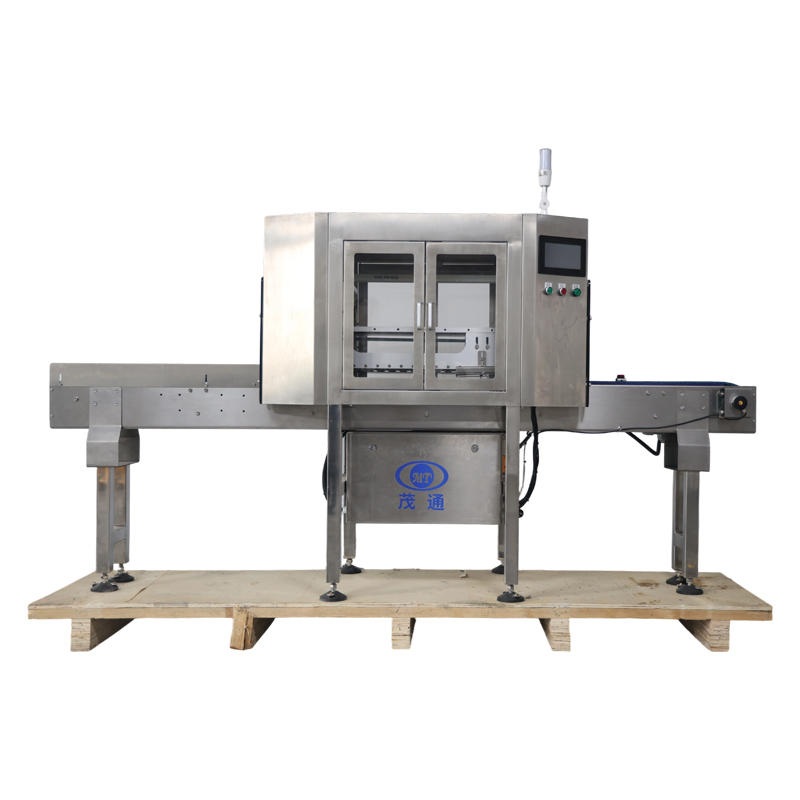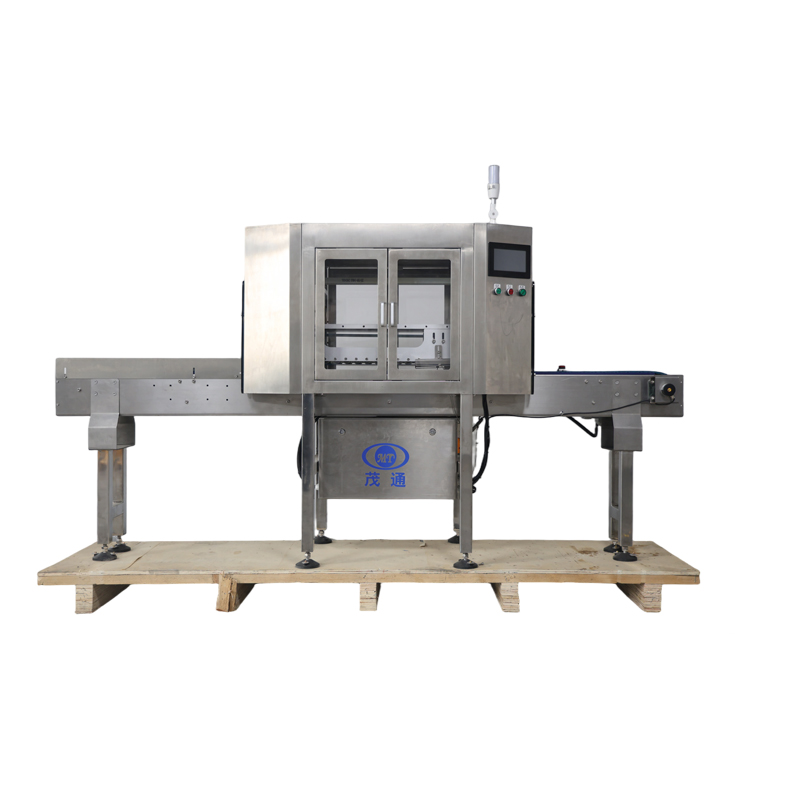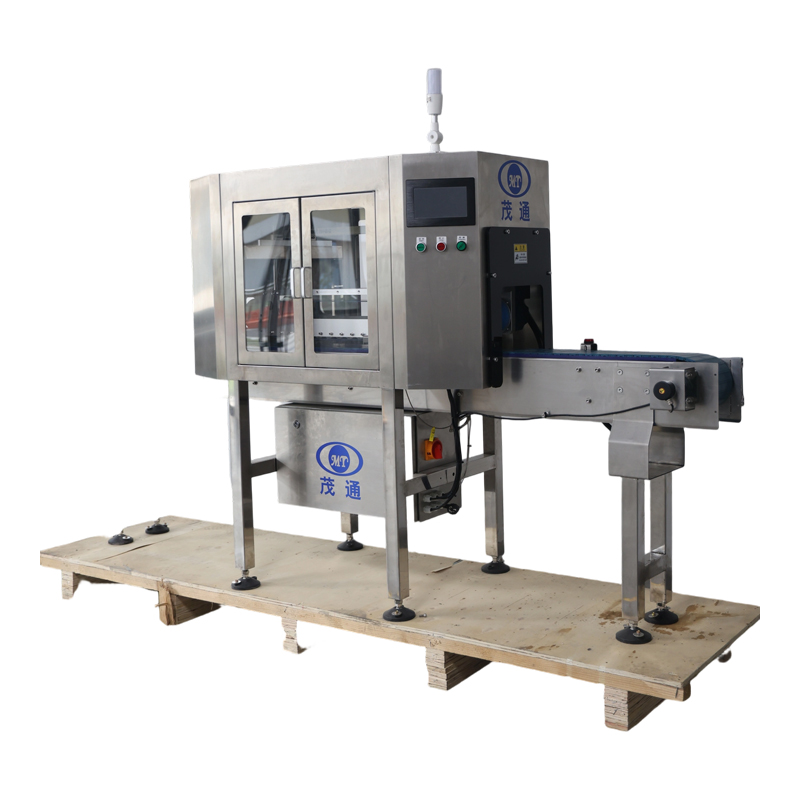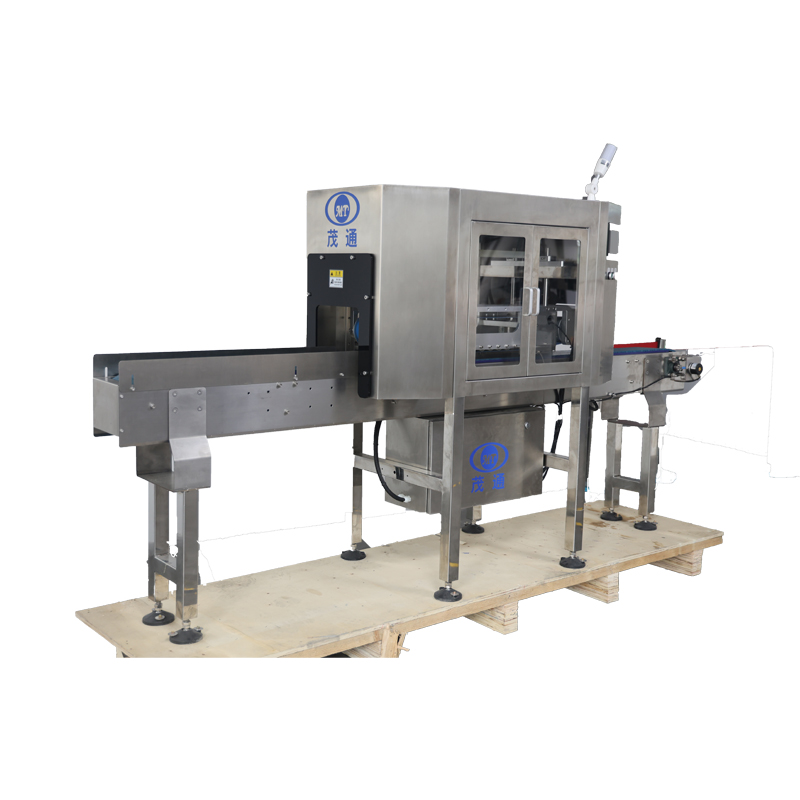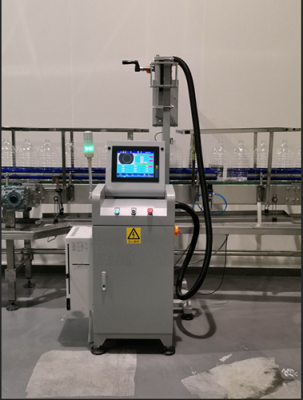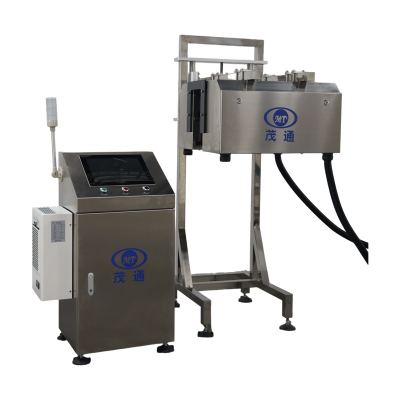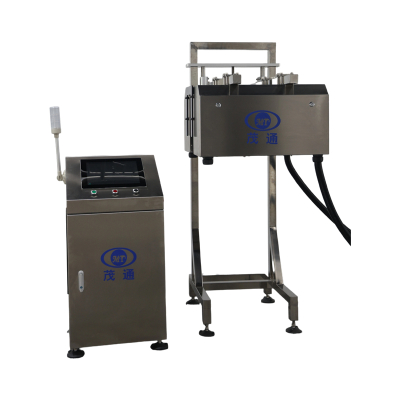Bag Air Tightness Testing machine
1.Using extrusion method and advanced force analysis algorithm, the fastest output can reach 400 bags / min.
2.It is suitable for nitrogen flled and other inflatable bagged food products
I. Product Overview
1. Performance Description
The MT-DZ-XL-S2-01 is a fully automated functional testing system, capable of handling up to 300 packs per minute. It employs a contact-based online testing method, providing a direct and accurate assessment of internal pressure conditions with stable and reliable data output. Compared with similar products both domestically and internationally, it delivers superior testing precision.
At the core of the system is belt-squeeze detection technology, refined through over ten years of research and application. During product conveyance, a flexible belt clamp applies controlled pressure, while a side-mounted sensor captures the pressure response inside the package. The controller converts the collected signals into digital data, which are then processed to evaluate the internal pressure and sealing integrity of each product.
2. Applicable Products
Cartons or pouches containing liquid nitrogen
Plastic bags filled with gas or vapor
Liquid aluminum foil stand-up pouches
3. Inspection Capabilities
Detection of leaks caused by poor sealing
Identification of under-pressurized or over-expanded packaging
4. Features and Specifications
Automatic adaptation to production line speed; halts when the line stops to prevent bursting or jams
Inspection capacity exceeding 300 bags/minute
Compatible with both high- and low-pressure packages
Pressure detection accuracy: ±0.02 MPa
High-speed testing capability
Intuitive human-machine interface (HMI)
Real-time dynamic display of multiple rejection results
Visual alarm indicator for abnormal impacts
Fully localized Chinese-language interface
Proprietary Maotong DSP-based signal processing algorithm
24/7 remote technical support
Automatic continuous rejection shutdown function
serial number
| Test contents | Test Description | Rejection rate
| False rejection rate
|
1 | Bag leakage | Improper sealing or leakage caused by material jamming | ≥99.98% | ≤0.05% |
2 | Bag pressure | Bagging pressure after sealing is too low or too high, deviating from the normal value by ±0.02 MPa | ≥99.93% |
6. Schematic diagram of equipment extrusion
Pre-compression Mechanism
A guide mechanism is installed at the front end to pre-compress each product, ensuring it maintains a stable internal pressure before testing. If the package has a leak, pressure is released as much as possible, and the pressure value is measured at the tail end. For intact products, the pressure change remains minimal; for defective ones, the difference is significant. This method provides a reliable means of detecting leaks and poor sealing quality.
7. Detection Principle
As the product moves along the conveyor, a positioning sensor detects its arrival, records its ID, and captures the encoder signal via the control unit. The sensor then triggers the force sensor to measure the instantaneous pressure applied against the belt. This data is transmitted to the Maotong signal processing board through the network, where it is analyzed in real time. The processed results are displayed on the HMI and sent to the control unit. If a rejection signal is confirmed, the control unit instructs the rejector to remove the product corresponding to the recorded ID that fails the pressure standard.
II. Equipment Installation
1. Loading, Unloading, and Storage
Securely package and transport the equipment, ensuring the sensor is protected from pressure and tension.
Wrap the exterior with moisture-proof, shock-resistant materials to avoid scratches, dents, or water damage.
Fix the equipment firmly on the transport vehicle to prevent movement.
Use specialized lifting tools when unloading, ensuring stable placement.
Maintain environmental conditions: 10–80% relative humidity, 0–50°C temperature during storage and operation.
2. Installation Requirements
2.1 Install the equipment horizontally, ensuring the clamping conveyor belt is parallel to the bottom conveyor belt.
2.2 Before power connection, check all cables and grounding of the control box.
2.3 Power supply: Single-phase AC 220V, 50Hz, 250W.
2.4 Air supply: 4–8 bar, meeting industry quality standards.
2.5 For accurate testing, install on a 1.5–2 m straight conveyor path, and test products after cooling.
3. Equipment Structure & Specifications
Overall dimensions: As shown above
Frame material: 304 stainless steel, conveyor-mounted
Weight: Approx. 100 kg
III. Safety Guidelines
3.1 Operation permitted only for trained personnel.
3.2 Maintenance restricted to professional technicians.
3.3 Ensure all safety warnings and protection devices are active before use.
3.4 Never operate with the cover open; disconnect power and air before opening.
3.5 Keep hands clear of the reject cylinder linkage while running.
3.6 Avoid blocking or touching the photoelectric switch to prevent false triggering.
3.7 Do not disconnect electrical connections while powered on.
3.8 Use warning tags during servicing to prevent accidents.
3.9 Ensure both machine and external devices are powered off before connecting; reconnect power afterward.
3.10 Properly ground the frame and control cabinet to protect sensitive electronic components from static electricity.

